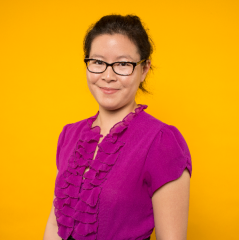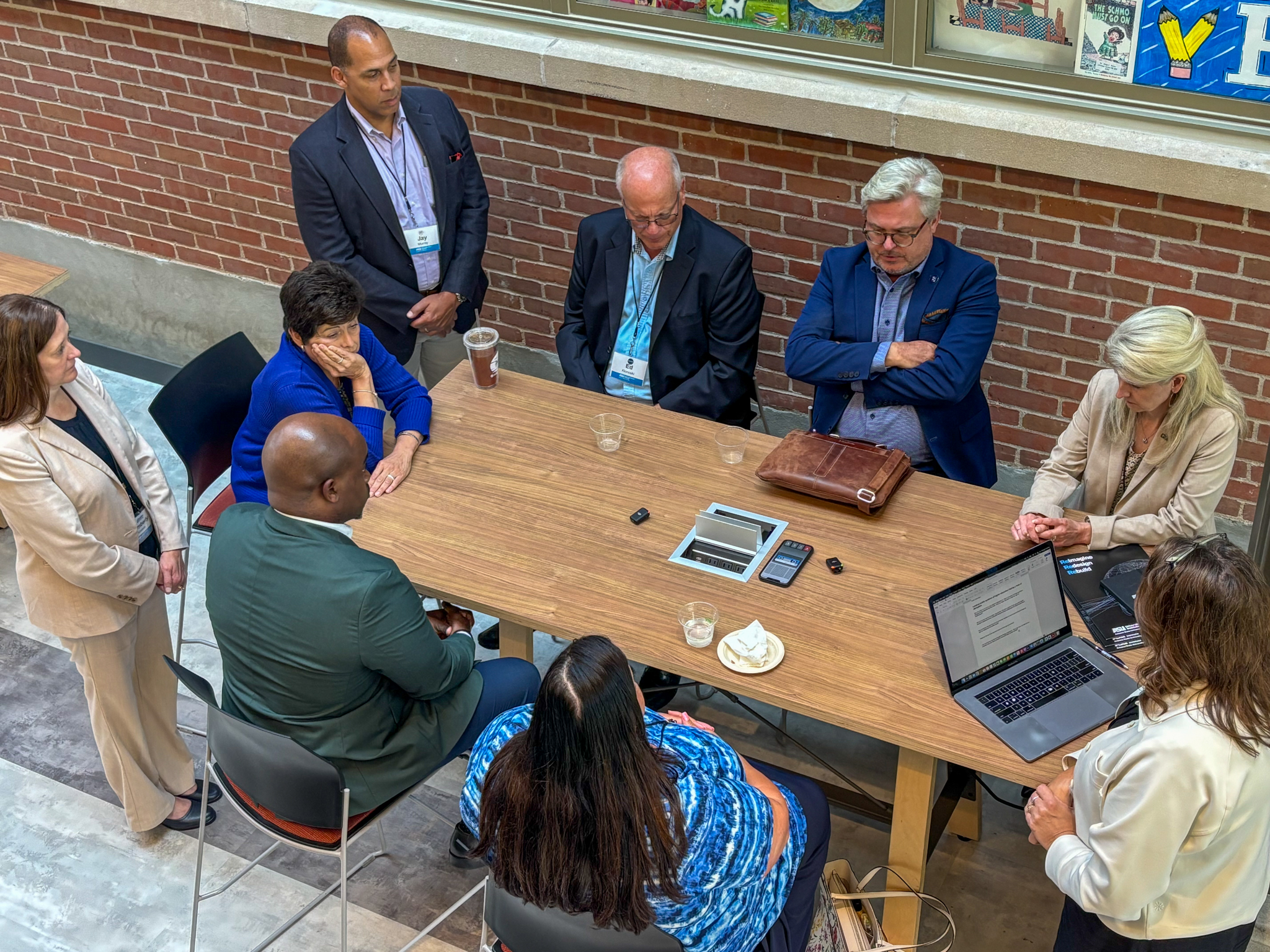Can leaders change? They most certainly can and do. In my role as a Project Manager, I have witnessed leaders have revelations and reflections on the ways they work and the ways they can improve.
For the past year, I have worked directly with higher education leaders from public institutions through the University Design Institute’s Design Accelerator. These leaders participate in design workshops, a process that takes them from a challenge to a deployable, testable six-month pilot as they work alongside a team of staff and faculty across their institution. The goal of the Design Accelerator is to strengthen the capacity of public institutions for regional and social transformation yet this process also transforms the mindsets of leaders in simple, impactful ways. Below, I share three of the lessons that have stood out to me.
The company we keep and undercover superstars
The truth is that pilots aren’t always successful, however, there are valuable lessons to be learned and carried forward in another iteration. What has remained constant are the prevailing leadership lessons that participants pick up along the way in these hands-on, team projects. Many of the Accelerator teams are provosts and vice presidents, along with directors, coordinators, advisors who are all working towards the same goal. Some team members have never met until they are gathered for the Accelerator kickoff. The teams have to quickly learn how to work together to produce the required deliverables in this multi-month journey.
Upon the conclusion of a recent Accelerator with a U.S. state higher education system, one provost revealed that they are going to make time to regularly connect with staff who work directly with students. They realized that bridging this divide was important. By working alongside a coordinator from Enrollment Services for five months in the Accelerator, they heard new perspectives to challenges and solutions, direct accounts of communication with prospective students, and insights that are extremely meaningful to their work. These meetings that they want to incorporate going forward are not meant to be micro-managerial, but simply a way of collaborating and gaining a better understanding of student struggles and successes from those who hear them first. This provost also discovered that they had a superstar on their team, someone with great care for the students they serve, wonderful ideas to contribute, and immense potential for growth at their institution. The cross-collaboration experience translated into concrete steps for them to improve as a leader and it was heartwarming to hear the support and admiration they had for their teammates.
I don’t know
Some leaders felt like they had to come into the Accelerator with an idea of what they wanted to pursue as a pilot and have all of the answers up front. The ambiguity and the step-back approach of the Accelerator was uncomfortable for many who wanted to go straight into solution-mode and implementation. An Associate Vice President’s leadership lesson was realizing they did not have all the answers and it was actually okay. Through the discovery deep-dive in the design process, they found that the problem they initially identified was not actually the problem and therefore rushing into a solution would have been less effective. They learned it was okay to be wrong – a key element of intellectual humility.
Going forward, they explained that they wouldn’t place that pressure on themselves to always have the answers from the get-go and instead approach situations with empathy, a listening ear, and time to sit with the discomfort. From the Accelerator experience, they came to the understanding that it can actually be beneficial to slow down to think, reflect, process, and take in multiple perspectives before jumping into “what’s the first thing I can do” or “I know that this will work”. In higher education, we’re always moving at such a quick pace, and I found it refreshing to hear a leader want to take steps to be more intentional in their actions and to challenge their initial assumptions to produce stronger plans and outcomes for their students and employees.
Keep dreaming
The Accelerator also encourages leaders to consider possibilities. One executive director treasured the multi-modal design-thinking method, which calls for participants to first diverge (brainstorm many ideas with no exclusions) and then converge (identify the common themes across the ideas) versus the traditional mode of starting with one promising solution and adapting it as needed. While many consider the most cost-effective or time-efficient path forward, this leader is now taking time to evaluate the many paths and possibilities in both their professional and personal life. Instead of trying to fit a solution into a problem, they are reframing and taking the time to ideate and apply it as a way to solve new and continuing problems, while considering tools at their disposal, people that should be brought into the process, and even asking for assistance. It’s bold thinking and big ideas that can have lasting impact at your institutions, even if you have to start small. As adults, we sometimes forget to dream, so I appreciated this leader sharing their insight that our ideation can be limitless.
As we take the Design Accelerator to new systems across the country and build a Community of Practice for alumni of the program, I’m excited to continue hearing, seeing, and sharing these nuggets of wisdom acquired by current and future leaders. There’s something we can each take away and apply to our own work. None of these leaders were told they needed to make changes. Instead, they, on their own, took pieces from the Accelerator experience they valued and saw as beneficial. It’s these small shifts in leadership mindsets that compound the innovation and make the largest impact in the transformation we see at the institutions and systems we serve.
Related reading:

